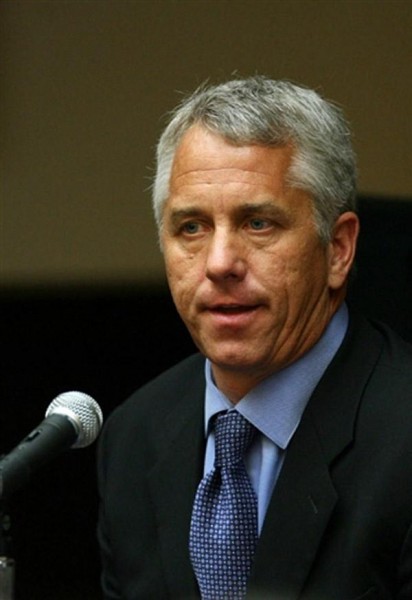LeMond explains: abuse helped him steer clear of doping
In an interview with The Sunday Times , former Tour de France winner Greg LeMond opened up about his...

In an interview with The Sunday Times, former Tour de France winner Greg LeMond opened up about his past personal history of sexual abuse and how that influenced him to stay clear of taking performance enhancing drugs.
LeMond doesn't remember how long he was subject to the sexual abuse from a friend of the family, but he knows it ended in April or May of 1975 after his parents' marriage stabilized. The abuse was never discussed in his family, and it hung as a cloud over his head for decades to come.
"Cycling was a way for me to reinvent myself," he said to The Sunday Times. "It was the first time I really had my dad in my life. It united my parents, united my family, and I think that's what really drove me. It felt so good to feel good about yourself and do something that my parents were proud of."
Driven to seek approval and not let people down, LeMond struggled with the fame. He was ashamed of himself and felt partially responsible for the abuse. It kept him from enjoying his success. "My first thought when I won the Tour was: 'My God, I'm going to be famous,' and then I thought, 'He's going to call.' I was always waiting for that phone call. I lived in fear that anyone would ever find out."
No one but his wife and therapist did until during the Floyd Landis doping hearing in May of this year when Will Geoghegan, a close friend of Floyd Landis at the time, prank called LeMond, pretending to be the person who abused him decades ago.
After almost losing his wife and family while he kept his past secret, LeMond opened up and took charge of his life. "I'm holding people accountable now. I've hired an investigator to find the guy who abused me, to get him on a [paedophile] list. Nobody is going to take advantage of me. I'm not taking shit from anybody...the last four years has been the proudest period of my life."
Speaking of his involvement with cycling, LeMond said, "There are a lot of unhealthy people that are driven to sports and they are driven by their own demons, their own past. You see it in business too... . They can't ever get enough money. They can't ever get enough glory. They can't ever fill the hole... It almost destroyed me, but I have been able to work through a lot of those difficulties."
Get The Leadout Newsletter
The latest race content, interviews, features, reviews and expert buying guides, direct to your inbox!
"It appears extraordinary, you know . . . It appeared that everything was always perfect in my life, but it's been far from perfect. I am fortunate where I am today...that I have been able to...address the stuff that I was never able to address . . . Compared to what I've been through in the past three or four years, the Tour de France is easy."
Near the end of his career, there were rumors of a new drug, EPO, and LeMond found he couldn't compete any more. He explained this to The Sunday Times.
"I know there was doping in the 80s and I'm certain a lot of riders were doing stuff and that cortisone was a drug of choice, but I was always able to perform and win races against those guys. At 19 years-old I finished third in the Dauphine; at 20, I won the Tour de L'Avenir by 10 minutes and finished second in the worlds. I was fortunate I was successful right away and didn't get drawn into that. By 1993 I was just so fatigued and I don't know if it was because everybody was on EPO, I really don't, but I was checked out for every possible problem there could be health-wise.
"I went to see a sports doctor and he said, 'Greg, there is nothing wrong with you; if you want to race well ... if you're not on EPO, you don't have a chance'".
LeMond claimed he never considered doping. "I had already won three Tours – and I don't know if this is on the record – but I don't think I could have survived a positive drug test. I'm talking psychologically."